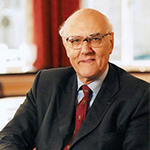Using the term primary care to mean general practice causes confusion and harm, argues Denis Pereira Gray
 The words “primary care” are now increasingly used for the words “general practice.” This is causing confusion in the NHS and positive harm in medical schools.
The words “primary care” are now increasingly used for the words “general practice.” This is causing confusion in the NHS and positive harm in medical schools.
Historically, both the Dawson report in 1920 and the World Health Organization Alma Ata declaration of 1977 used primary care to mean all care outside hospitals, and the words “primary care” are still used in this sense. [1,2] However in recent years the words “primary care” have been used in a different sense, for example, to mean general practice alone.
The first problem with the words “primary care” is definition. I have been asking people for several years how they define it and many shrug their shoulders—an eloquent non-verbal signal of confusion. Two academics defined it as first contact care. I then asked them if they included pharmacy care and accident and emergency departments in this definition, and one did and one did not.
There is primary care separate from general practice, such as nurse led walk in clinics, pharmacy prescribing, community midwives, health visitors, paramedic outreach, urgent care services, and much of accident and emergency medicine. These important services should be described by name and not be confused with general practice, which is a relationship based, generalist, medical service, integrating preventative and curative care for a precisely defined, registered population.
When used in the NHS, there is a continuing cost in the lack of clarity, as many people simply are not sure what the words “primary care” actually mean. However, when used in medical schools, these words do serious harm to medical students and can be seen as part of what Oldham and Everington call the “discrimination against general practice.” [3]
If medical students go home and tell their parents that they are studying to be a primary care practitioner, the likely response is: “What is that? Is it a doctor? Is it a nurse? Is it a pharmacist or a paramedic?” All of these are described at times as primary care practitioners.
Medical students, their families, and people overall understand general practice, and are all registered with a practice, and many have good relationships with and real respect for their general practitioner. Patients never talk about registering with or going to primary care. The Royal College of General Practitioners and the General Practitioners committee of the BMA could do more to protect the good name of general practitioners.
I am proud to be a GP/family doctor, but I am certainly not proud to be a primary care practitioner and I have never heard fellow GPs or medical students saying they want to be primary care practitioners either. It is not surprising that 81% of medical students do not see general practice as their first choice career when medical schools systematically deny the very name of the discipline. [4] Medical students interested in becoming general practitioners can be faced with a medical school prospectus that never mentions the words “general practice,” and deans and professors who carefully avoid saying these words and who virtually never teach it as a subject. [5] Medical students interested in the specialties are taught by cardiologists, surgeons etc. and are not told that they are going to be secondary care practitioners.
The words “primary care” are weasel words in medical schools, making it particularly difficult for medical students to be interested in general practice, to choose it enthusiastically, and eventually to practise it with pride.
Sir Denis Pereira Gray OBE HonDSc FRCP FRCGP FMedSci worked as a GP in the St Leonard’s Practice, Exeter for 38 years. He is an emeritus professor of the University of Exeter, a former chairman and president of the Royal College of General Practitioners, and a former chairman of the Academy of Royal Colleges—the only GP ever elected to this role.
Competing interests: None declared.
References:
1. Dawson Committee. Interim report on the future provision of medical and allied services. Chairman Lord Dawson of Penn, London, HMSO 1920
2. WHO and UNICEF Alma Ata declaration 1977, Geneva; WHO and UNICEF 1978
3. Oldham J and Everington S, Medical school training: Five year backward view. BMJ 2017;356:j294
4. Foundation programme 2016 Career Intentions Table 2 London Foundation Office
5. Pereira Gray D. Towards research-based learning outcomes for general practice in medical schools: Inaugural Barbara Starfield Memorial Lecture. BJGP Open 2017; BJGP-2016-0507.
